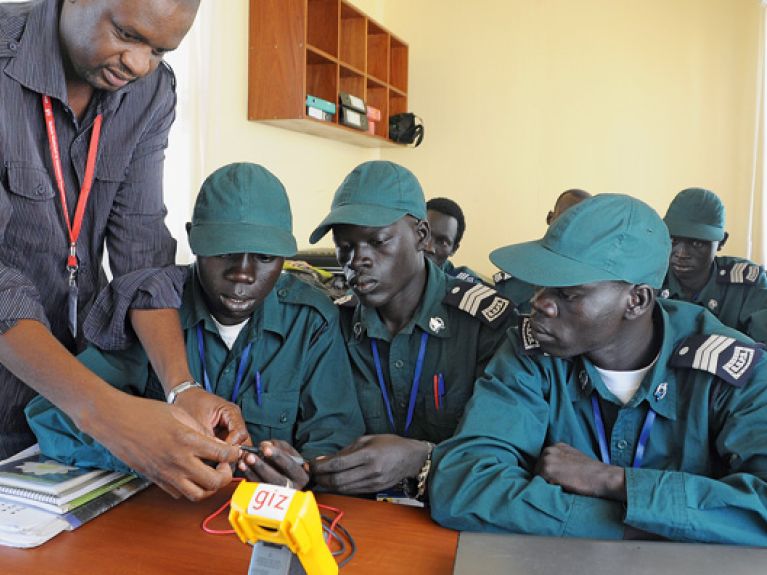Committed to security and human rights
The Police Programme Africa supports African countries in establishing and expanding police structures.

It is a well that indicates to Abdoulaye Zono that trust is gradually growing. The well is located at a police station in Niamey, the capital of Niger, and people regularly come here to draw water. These days they often stay for longer and chat with the police officers, telling them when they have had cattle stolen or if they have seen other things that unsettle them or make them fear for their safety. “People are realising that the police are there for them, to support them,” says Abdoulaye Zono. This is one small but not insignificant success of his work as project manager at German development cooperation organisation GIZ and of the work of his team in Niamey.
Since 2008, the GIZ has been implementing the Police Programme Africa on behalf of the German Federal Foreign Office in a total of eight countries. Nigeria, Cameroon, Côte d’Ivoire, the Democratic Republic of Congo, Chad, Mauritania and South Sudan are taking part in the programme besides Niger. In addition, there is cooperation with the police components of the Economic Community of West African States (ECOWAS), the African Union (AU) and the East African Standby Force Secretariat (EASFSEC).
The aim is to carefully establish and expand police structures in fragile post-conflict states in sub-Saharan Africa and the Sahel region, providing the authorities with equipment and other material and training police officers for their duties. This takes place in close consultation with the national authorities, as well as with European donors and the partners of the African Union. As Abdoulaye Zono explains, it is a sensitive process which demands patience and trust on both sides. “If a country is to enjoy any social and economic development, it is essential for people to be protected by a secure legal framework,” stresses GIZ project manager Sabine Wenz.
The measures implemented can vary enormously from country to country. Sometimes it is a question of establishing a national database that allows the police to access its personnel, while other places need radio masts or training in crime scene investigation. And yet elsewhere new police stations are being built such that victims of sexual violence are provided with a secure area in which to make their statements. The GIZ repeatedly includes the topic of human rights at different levels when training police officers. “It is good to see that partner institutions are doing their bit, have made commitments over the years and are genuinely implementing reforms,“ says Sabine Wenz.
For Abdoulaye Zono in Niger, one central aspect is building up relations with the public. Three border posts have now been set up at strategically important points. Not only regular patrols take place there; workshops are also organised with the police to which local village elders and consultants are invited: “These days, calm and trust have been built up for the rural population at these border points.“ ▪

